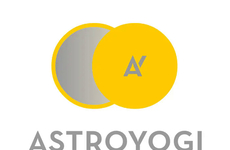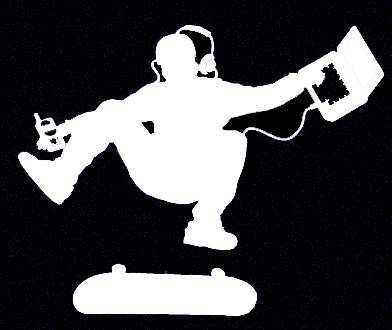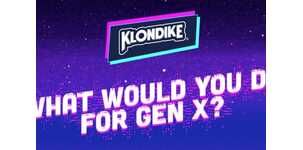
IBM Survey
Marketers are recognizing the advantage of tailoring to meet the needs of the "gadget generation" according to an IBM study being released today. Findings showed "media consumption patterns are changing and marketers dollars are following the trend."
This generation refers to 18-24 year olds, including recent high school graduates, post-secondary students and those entering the work force, armed with gadgets and internet savvy.
"Today's generation, when they graduate college, does not have a land line phone, but a mobile phone and the generation following them won't have cable or satellite subscriptions," the report said. "They get [their content] from the Internet via various digital devices:So you have to be appealing to all of these different mediums. Marketers have to start thinking about how they're going to cross channel their communications and reach their consumers in all the different places, through all the different media, where they are."
2,400 consumer participated in the international study as well as 80 ad execs from the U.S., the U.K., Australia, Germany and Japan. 36% of study respondents said they spent over 4-6 hours online while only 23% spent personal time watching TV.
"Marketing execs are reacting. Those surveyed estimated they would increase their spend on digital initiatives by 22.4% by 2010. This includes mobile, online, interactive TV and in-game ads," BrandWeek said.
"Spending on traditional ad media like broadcast, radio, print and outdoor will also increase albeit at a slower rate. Marketers said they will spend 4.4% more on traditional advertising."
"The study said marketers should be aware of the increasingly diverse digital platforms being used by consumers and effectively use these platforms to communicate impactful branded messages."
The study showed 44% of US consumers had MP3 players, 38% had game consoles, 26% had hi-def TVs, 26% had media center PCs and 24% owned DVR. Entertainment content came mostly from the web, 45% from social networks, 29% from YouTube, 24% from iTunes, and surprisingly, 18% from online newspaper subscriptions.
This generation refers to 18-24 year olds, including recent high school graduates, post-secondary students and those entering the work force, armed with gadgets and internet savvy.
"Today's generation, when they graduate college, does not have a land line phone, but a mobile phone and the generation following them won't have cable or satellite subscriptions," the report said. "They get [their content] from the Internet via various digital devices:So you have to be appealing to all of these different mediums. Marketers have to start thinking about how they're going to cross channel their communications and reach their consumers in all the different places, through all the different media, where they are."
2,400 consumer participated in the international study as well as 80 ad execs from the U.S., the U.K., Australia, Germany and Japan. 36% of study respondents said they spent over 4-6 hours online while only 23% spent personal time watching TV.
"Marketing execs are reacting. Those surveyed estimated they would increase their spend on digital initiatives by 22.4% by 2010. This includes mobile, online, interactive TV and in-game ads," BrandWeek said.
"Spending on traditional ad media like broadcast, radio, print and outdoor will also increase albeit at a slower rate. Marketers said they will spend 4.4% more on traditional advertising."
"The study said marketers should be aware of the increasingly diverse digital platforms being used by consumers and effectively use these platforms to communicate impactful branded messages."
The study showed 44% of US consumers had MP3 players, 38% had game consoles, 26% had hi-def TVs, 26% had media center PCs and 24% owned DVR. Entertainment content came mostly from the web, 45% from social networks, 29% from YouTube, 24% from iTunes, and surprisingly, 18% from online newspaper subscriptions.
Trend Themes
1. Digital Media Consumption - Opportunity for marketers to tailor their advertising strategies to reach the gadget generation through various digital platforms.
2. Increasing Digital Ad Spending - Marketers projected to increase their spend on digital initiatives, including mobile, online, interactive TV, and in-game ads, by 22.4% by 2010.
3. Diverse Entertainment Platforms - Growing demand for entertainment content from web-based platforms like social networks, YouTube, iTunes, and online newspaper subscriptions presents opportunities for marketers to engage with consumers.
Industry Implications
1. Advertising - Advertising industry can seize the opportunity to specialize in digital ad campaigns to target the gadget generation effectively.
2. Entertainment - The entertainment industry should leverage the popularity of diverse digital platforms to distribute and monetize their content effectively.
3. Consumer Electronics - The consumer electronics industry can innovate and create gadgets that cater specifically to the needs and preferences of the gadget generation.
2.4
Score
Popularity
Activity
Freshness























